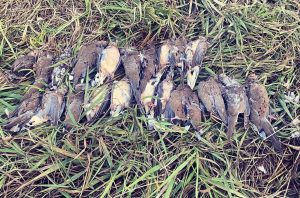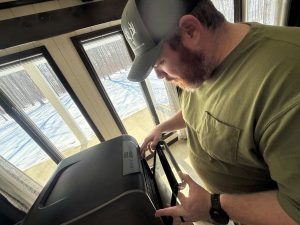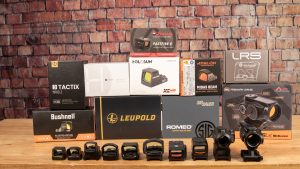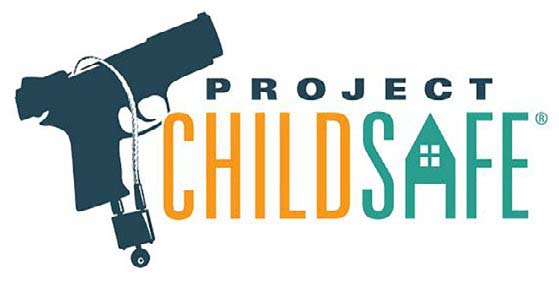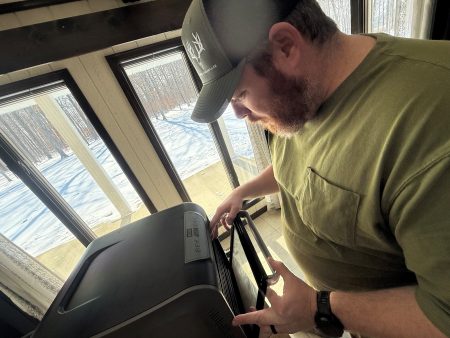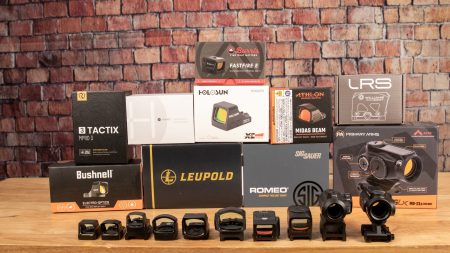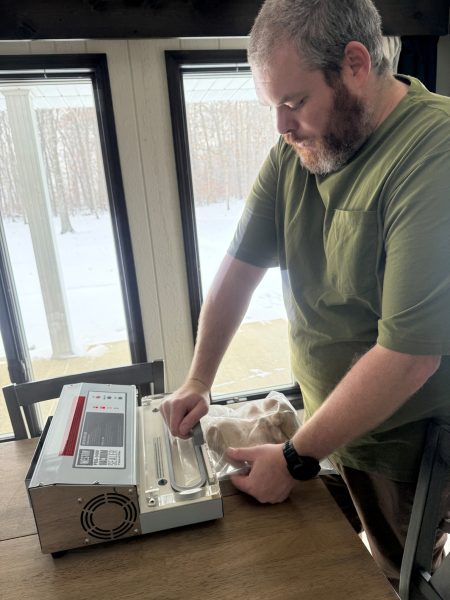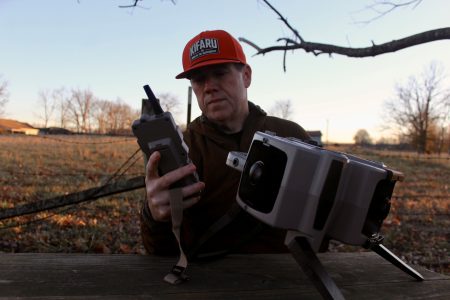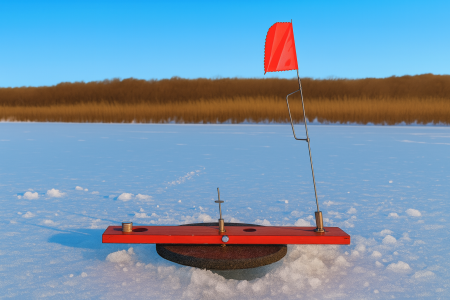Your hunt is over and you may be elated, dejected or somewhere in-between. No matter how you are feeling, what’s the last step of your hunt?
Bill Brassard, Senior Director of Communications with the National Shooting Sports Foundation (NSSF), emphatically says, “The hunt is not over until your firearms are unloaded and properly stored.”
Brassard has decades of expertise, stories and advice on the subject as he’s been with NSSF for 25 years. NSSF is the firearm industry’s trade association with 10,000 companies as members. Its headquarters is in Shelton, Connecticut.
Brassard runs Project ChildSafe, its goal being to help gun owners take proper steps to securely store their firearms when not in use in order to keep firearms out of the wrong hands.
“No one wants their firearms accessed by a child, someone in crisis, or someone with a condition like dementia,” he said.
Safe and proper storage is the number one way to help prevent firearm accidents in the home. Additionally, secure storage helps prevent theft and misuse of firearms.
This time of year is a fitting time to catch up with Brassard because June is National Safety Month, a time to increase safety awareness with the goal of reducing preventable injuries and deaths.
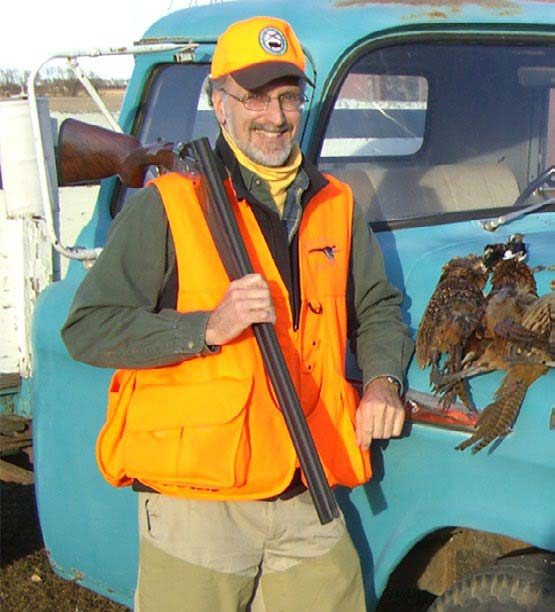
How Project ChildSafe Makes a Difference
Started in 1999, Project ChildSafe began in just five cities in the U.S. but has now grown to serve all U.S. states and territories. The project distributes educational brochures as well as free firearm safety kits that include a cable-style gun-locking device as well as instructions for attaching it.
No single lock will fit all firearms. But these cables fit most gun types, and—in most cases—can be put only on unloaded firearms. In comparison, trigger locks can be put on loaded firearms.
To date, 40 million safety kits have been distributed through their partnerships with 15,000 law enforcement organizations. Any enforcement agency can request these locks, which come 100 to a box. “Demand has never been greater,” Brassard said.
As the head of this program, Brassard has heard stories firsthand of how their safety kits have saved lives. Parents have suddenly seen their children holding firearms with locks on them, and the parents are rightfully thankful for the Project ChildSafe program.
NSSF’s partners are numerous and diverse. They include local and state police, sheriffs, campus police, community and business leaders, the firearms industry, and elected officials.
One of the strengths of NSSF’s approach to its work is that it stays in touch with its partners, not just delivering boxes of kits and then stepping back. It rolls out programs and campaigns all year long, apropos to the season. For example, there’s a S.A.F.E. Summer campaign to remind parents to check their firearm storage as kids are getting out of school for the summer, and there’s the Hunt S.A.F.E. program rolled out in the fall.
“Our goal is to keep them active partners,” said Brassard.
The ChildSafe program has multiple funding sources, primarily the firearm industry and also grants, donations and the Project ChildSafe Foundation.
Gun owners who wish to receive a free safety kit should contact a participating law enforcement agency in their area. Project ChildSafe Safety Kit distribution partners can be found HERE
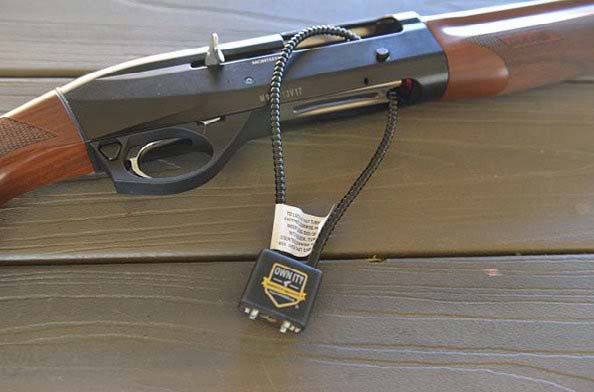
What is safe and secure storage for firearms?
Now that your firearms have locks on them, are you done? The answer is a resounding “no,” as a gun lock is not a substitute for safe storage. Safe storage is not hiding a gun in a closet, drawer or similar location.
Responsible gun ownership means you have multiple safeguards in place, not just locks on your firearms. Unloaded firearms should be stored in a locked cabinet, safe, gun vault or storage case.
Additionally, your ammunition should be stored safely, properly, and separately from firearms. That means it’s in a locked place too. Some of NSSF’s most popular resources are those that describe the various options available for storage of firearms.
“We help people determine which locking device is best for their lifestyle or home,” said Brassard. The brochure Gun Storage for Your Lifestyle will help gun owners determine which mechanism best suits their lifestyle, priorities and environment.
For example, if you want to have quick access to your firearm for home security, you will want a different storage system than, say, a storage system a hunter might want. Special lockable cases that can be quickly opened only by authorized individuals are options to consider for the former.
Some states are enacting legislation to address safe storage for firearms, including Vermont and Connecticut. Brassard prefers voluntary and educational efforts to meet each firearm owner’s unique needs and circumstances.
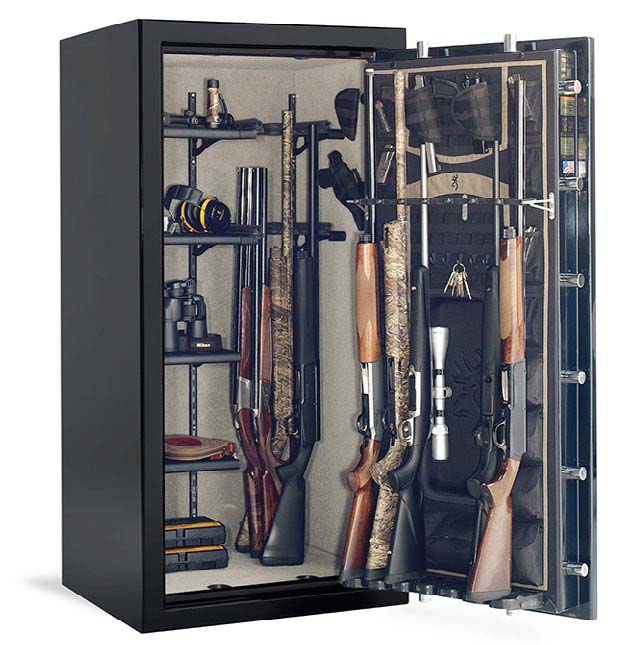
Creating Project ChildSafe Communities
Once or twice a year, Brassard said NSSF takes Project ChildSafe on the road for an intensive effort. Recently, they went to Columbia, South Carolina, where NSSF President and CEO Joe Bartozzi launched the program with the mayor, law enforcement and community partners. This format, called Project ChildSafe Community, also has been rolled out in Albuquerque, Baton Rouge, Oklahoma City and Memphis. In these communities, broad coalitions are built with even more diverse groups such as hunters, retailers, 4-H groups, and state government agencies, among others.
“It’s a lot of work for us to bring in more resources,” said Brassard. But he knows the effort is rewarded with increasing firearm safety because of these community safety ambassadors.
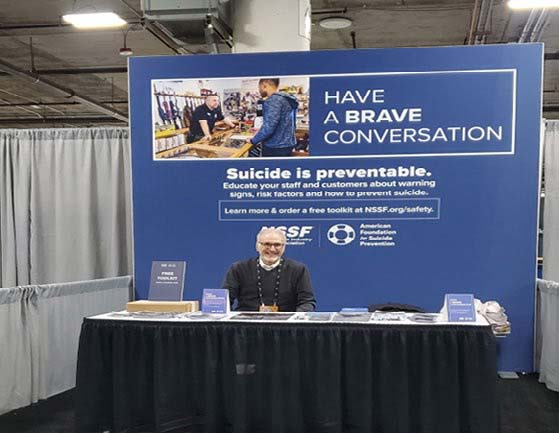
Firearm Owners Can Help With Suicide Prevention
Guns and suicide are important topics for firearm owners.
In 2021, the Centers for Disease Control and Prevention (CDC) estimated that 54% of firearm deaths are by suicide. The CDC reports that almost one in three American high school girls had considered suicide recently, and more than 40 percent of teens were persistently sad or hopeless.
The American Foundation for Suicide Prevention (AFSP) estimates that 56% of Americans have been touched by suicide either directly or indirectly. The NSSF partners with AFSP in numerous ways, and Brassard also runs NSSF’s program called Have a Brave Conversation. The program includes educational information on warning signs and risk factors of suicide, as well as ways to help individuals in crisis. In collaboration with AFSP, the NSSF had produced a new brochure on youth mental health.
“We encourage parents to talk to their kids about gun safety on a regular basis and to learn how to spot when their teens might be struggling with their mental health and how to respond,” said Brassard. For young children, the message is don’t touch a gun and tell your parents if they see one. For teens, who may show an interest in shooting a gun, the program encourages parents who want to let them try target shooting to do so in a supervised and safe environment.
One main premise of preventing suicide deaths is the concept of time and distance, explains Brassard. If a person is in crisis, they are more likely to make impulsive decisions. If they can’t access a means to end their life, there’s time for the crisis to pass. Hence, locked firearms and locked ammunition make a difference. Suicide among veterans is a big issue, and NSSF partners with the U.S. Department of Veterans Affairs to remind veterans and their families of the importance of secure storage.
NSSF Programs Go Beyond Gun Owners to Retailers and Others
The Real Solutions NSSF program has three main projects that work to keep guns away from prohibited persons.
Retailers such as gun stores are important partners for NSSF. Operation Secure Store is a campaign to help prevent thefts and break-ins of gun stores.
Don’t Lie for the Other Guy is also aimed at retailers to prevent straw purchases of firearms. A straw purchase is when someone buys a gun for someone else, typically someone who wouldn’t qualify to buy one. Penalties for making a straw purchase are steep, including up to 15 years in prison and huge fines.
The firearms industry’s ongoing FixNICS campaign helps improve the FBI’s National Instant Criminal Background Check System (NICS). These databases are incomplete because many states have not provided all records that establish someone is prohibited from owning a firearm under current law, especially including mental health adjudications and involuntary commitments orders. FixNICS seeks to enhance background checks before gun purchases by including all relevant information in the databases.
How NSSF Fits into the Broader Landscape in the U.S.
NSSF is well known for its SHOT Show, the largest trade show in the world for the shooting sports, hunting, outdoor recreation, law enforcement and firearm manufacturing industries. It’s held annually in Las Vegas, and SHOT is an acronym for Shooting, Hunting and Outdoor Trade Show.
NSSF is also a big player in the outdoor media arena, and Bassard believes the organization has a unique position to play in this media landscape. “Our safety programs are from a trusted source. We have credibility with gun owners—we are on their side,” said Brassard. “Our programs are created by gun owners for gun owners.”
Getting the Messages Out
“There’s no excuse for not safely storing your firearm,” concludes Brassard. “Safe storage saves lives.” Given his employment with NSSF for the past 25 years, Brassard is rightfully proud of his work.
“Unintentional firearm fatalities are at historical lows,” said Brassard. According to the National Safety Council, accidental firearm-related deaths are down 31.5% from 2001 to 2021. “For me, this is hugely fulfilling work,” Brassard said. “I know we are saving lives by getting these messages out.”
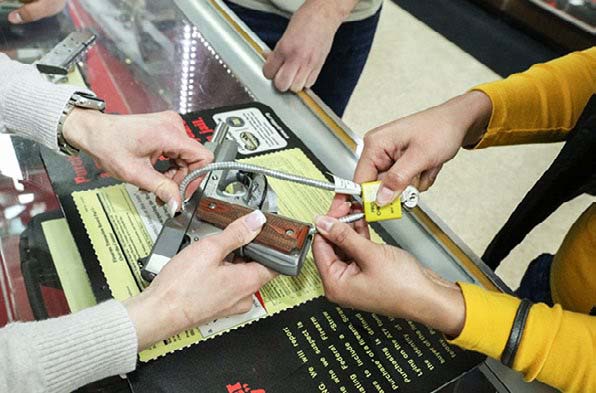
Is a locked vehicle safe storage for a firearm?
No, says Bill Brassard succinctly. A vehicle that is locked is not safe gun storage.
There are times you may have to leave your firearm in your vehicle, such as for a food or bathroom break before or after your hunt. Firearm thefts from vehicles are on the rise, said Brassard, and sometimes thieves steal vehicles not knowing there is a firearm in them. You do not want your gun stolen and potentially misused by a criminal. Moreover, in some states you could face serious penalties and fines for failure to properly secure your firearm. A lockable gun case or a lock box may be the most practical choice to securely store a gun in a vehicle. These come in a range of prices and models, and they should be installed so they are hidden from view.
See NSSF’s website for more information and tips on firearm safety in vehicles.
Much of NSSF’s safety literature is also available in Spanish.
Per our affiliate disclosure, we may earn revenue from the products available on this page. To learn more about how we test gear, click here.

